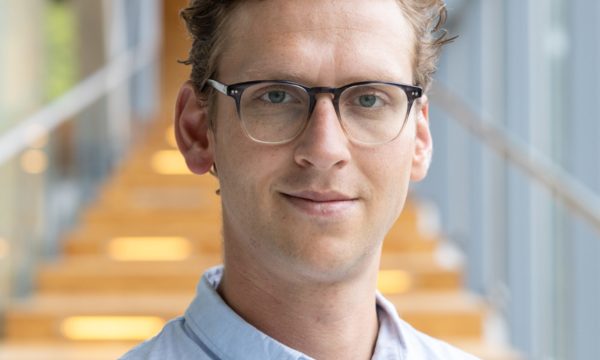Dr. Ward van der Stam

Ward van der Stam (UU) is tenure track Assistant Professor at Utrecht University in the Inorganic Chemistry and Catalysis research group of Prof. Bert Weckhuysen.
What do you do?
My research at Utrecht University focuses on the combination of colloidal chemistry and in situ spectroscopy/diffraction techniques in order to understand and steer the electrocatalytic CO2 reduction reaction.
Colloidal nanomaterials
The overarching goal of my research is to rationally design electrocatalyst nanoparticles that selectively convert CO2 into value-added base chemicals and fuels, such as long-chain hydrocarbons and alcohols. For example, 16 products are known to evolve from copper electrocatalysts, and I want to understand why certain products form and how we can selectively make a specific product. I personally think that colloidal nanomaterials offer interesting opportunities to achieve this goal, since the size, shape and composition of these nanomaterials can be tailored with atomic precision, and these parameters heavily influence the outcome of the CO2 reduction reaction.
In situ electrochemical cells
Specific challenges of this research involve the design and construction of in situ electrochemical cells that are compatible with different characterization techniques (e.g. infrared and X-ray radiation) while ensuring the electrocatalytic performance (e.g. activity and selectivity of the CO2 reduction reaction). Currently, our team of PhD-students, postdocs and technicians is developing electrochemical cells for in situ surface-sensitive and time-resolved Raman spectroscopy, (Grazing Incidence) X-ray Scattering and Diffraction and X-ray Absorption Spectroscopy measurements, and future developments will focus on surface-sensitive Infrared Spectroscopy and fluorescence spectroscopy.

Future developments and collaboration
I think MCEC is an excellent environment for this research to take the next step and understand the CO2 reduction reaction in detail and valorize industrial CO2 waste streams. I look forward to many fruitful collaborations within MCEC, since the interdisciplinary background present within the community allows for out-of-the-box research and innovative science.